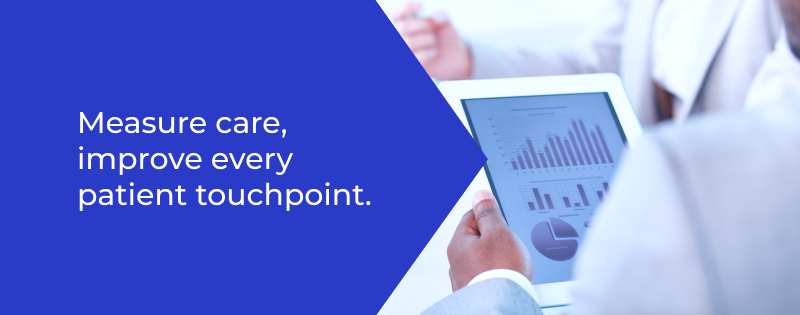What your patients experience during their hospital visit doesn’t end when they leave. It follows…

Responsibly Leverage AI to Enhance Patient Relationships
The introduction of ChatGPT in 2022 thrusted Artificial Intelligence (AI) into the spotlight, and ever since, we’ve been inundated with daily stories about how the technology is enhancing both our personal and professional lives. We at TeleVox have certainly embraced the trend with the launch of Iris, our AI-powered virtual assistant, that is already improving the lines of communication between patients and their providers.
Yet, at the same time, there are clear examples of AI not living up to expectations. We’ve seen headlines about AI making up statistics, plagiarizing another’s work without giving proper credit, or even letting bias run rampant due to incomplete data. These stories have left many feeling conflicted about whether generative AI is something to welcome with open arms or avoid entirely.
The TeleVox Approach to AI
TeleVox has served as a trusted brand in healthcare communication for more than 30 years. It’s in our DNA to work hard with healthcare facilities and patients to build trust, preserve care continuity, and enhance patient experiences and outcomes. As new technology becomes available that improves the healthcare communication process, we are always quick to explore them.
AI is one of the latest technological advancements that TeleVox has leveraged. Early on, we recognized its potential benefits for patient relationship management and had ongoing discussions internally about appropriate ways that we could deploy this technology. We quickly recognized the opportunities that AI presents to make the patient experience easier – whether that was around communicating with their provider, accessing information about a procedure, or getting responses to their questions.
Consider a patient who needs to schedule an appointment. According to HealthTech Magazine, 80% of patients prefer providers who offer online appointment scheduling. So instead of calling the office, sitting on hold for five minutes, and then waiting for a staff member to comb through a schedule to find a date and time that works well, that patient could easily text or webchat with the AI virtual agent and have the appointment rescheduled in the time it otherwise takes to dial the phone number. It saves the patient time and allows the healthcare staff to focus on providing care.
Alternatively, think about the patient who needs to navigate from their home to an office located within a large hospital for a first-time medical procedure. They could utilize Google Maps for directions to the hospital, search for directions within the hospital that are buried deep within a website, and hope that they remember the paperwork from their last office visit that details their prep instructions. Or an AI virtual assistant can send them messages directly outlining every step of their journey the moment they need it.
These are just two examples of how AI can be used responsibly to create efficiencies for both patients and healthcare staff. But next, let’s look at one of the common challenges with AI and how TeleVox is overcoming it.
Approved Content Only
The difference between TeleVox’s use of AI and other chatbots is that we restrict the knowledge base of our Iris virtual agent to only content that is approved by the provider. So, when a query comes in from a patient, Iris will look for an answer based on what’s readily available on a provider’s website or marketing materials as opposed to browsing the entire internet. This keeps a patient from accidentally following the wrong instructions and provides a personalized communication stream for them. And when the question cannot be answered, Iris will relay the patient to a real person to answer their question. So, no matter what, the patient can get their answer and not be misdirected by AI.
TeleVox also does not use AI to give medical advice. As our president Vik Krishnan told Health Innovation Matters, “that’s not the game we’re in. That’s a responsibility of the provider.” There are many things that AI can do to ease the burden on patients and healthcare staff, but we strongly believe the most important part of a healthcare journey is the relationship between the patient and the provider.
The Future of AI and TeleVox
We remain at the infancy of AI and the profound impact that it may have within the healthcare industry is becoming clearer. As the technology matures, TeleVox will continue to advocate for its responsible use in healthcare communication. Rest assured that we will always have the patient’s and provider’s best interests at heart – as we have for the past 30 years – as we explore this new frontier of patient relationship management.
Take a look at how we’re currently using AI to enhance patient relationship management in our Taking Patient Relationships to New Heights with AI Technology eBook.



